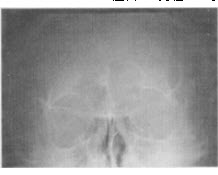案情:吴某在经过A地时被A地国家税务局,以违反税收征收管理法有关规定为由,扣留人身24小时。经查明,王某在6年前确实有过违反税收征收管理法行为。吴某被解除人身扣留后,回住所地B市,吴某不服A地国家税务局的人身扣留欲向法院起诉。 问题:
如果经复议机关复议维持了原具体行政行为,而经人民法院审理,确认该行为违法,其是否可以就该行为提起国家赔偿请求赔偿义务机关是谁
参考答案:吴某有权要求国家赔偿,赔偿义务机关应当是A地国家税务局。
解析:本题法条依据在于《国家赔偿法》第3条:行政机关及其工作人员在行使行政职权时有下列侵犯人身权情形之一的,受害人有取得赔偿的权利: (1) 违法拘留或者违法采取限制公民人身自由的行政强制措施的; (2) 非法拘禁或者以其他方法非法剥夺公民人身自由的; (3) 以殴打等暴力行为或者唆使他人以殴打等暴力行为造成公民身体伤害或者死亡的; (4) 违法使用武器、警械造成公民身体伤害或者死亡的; (5) 造成公民身体伤害或者死亡的其他违法行为。 第7条:行政机关及其工作人员行使行政职权侵犯公民、法人和其他组织的合法权益造成损害的,该行政机关为赔偿义务机关。 两个以上行政机关共同行使行政职权时侵犯公民、法人和其他组织的合法权益造成损害的,共同行使行政职权的行政机关为共同赔偿义务机关。 法律、法规授权的组织在行使授予的行 * * 力时侵犯公民、法人和其他组织的合法权益造成损害的,被授权的组织为赔偿义务机关。 受行政机关委托的组织或者个人在行使受委托的行 * * 力时侵犯公民、法人和其他组织的合法权益造成损害的,委托的行政机关为赔偿义务机关。 赔偿义务机关被撤销的,继续行使其职权的行政机关为赔偿义务机关;没有继续行使其职权的行政机关的,撤销该赔偿义务机关的行政机关为赔偿义务机关。 第8条:经复议机关复议的,最初造成侵权行为的行政机关为赔偿义务机关,但复议机关的复议决定加重损害的,复议机关对加重的部分履行赔偿义务。 题中,A地国家税务局对吴某的限制人身自由的具体行政行为已经由人民法院确认为违法,按照第3条第2项的规定,应当属于行政赔偿的范围,因而吴某有权要求国家赔偿。而该侵犯吴某人身自由的具体行政行为是A地国家税务局作出,复议机关也没有加重侵权行为,A地国家税务局为赔偿义务机关。

